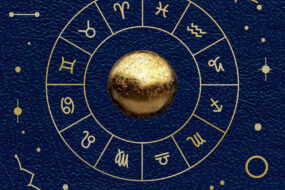
Europe, which the EU is supposed to represent, is fighting a double war that could ravage it beyond recognition – against Greece within its own borders, and against Russia in Ukraine.
An exhibition in Rome could not – inadvertently – be more graphic in defining the zeitgeist: “The Age of Anxiety – from Commodus to Diocletian.” Well, Roman emperors could barely imagine it would get much worse under the EU.
Then there’s the other crucial vector in this Age of Anxiety remix: Russia.
Moscow could indeed bail outbail out Athens, a possibility which has already been mentioned. So the Western corporate spin about Greece supporting this week’s extension of sanctions against Russian interests is nonsense.
Here is the essential background. And directly from Varoufakis, there is proof that Greece was not even consulted. Another nail in the lavish coffin of the myth of EU “democratic” practices.
Don’t expect puny EU puppets posing as “leaders” – who derive their prestige by being vassals of the amnesiac Empire of Chaos – to cultivate any historical memory. Which brings us to Ukraine.
Ukraine was part of Russia for three centuries – way longer than Texas and California have been part of the US. Russia giving up Ukraine after the end of the USSR does not hold as a historical precedent to justify the Maidan coup d’etat, billions of dollars financing internal subversion, and the subsequent looting of Ukraine by US multinationals, Germany, and the City of London. Not to mention the whole saga is mostly – and will remain mostly – about NATO expansion.
Imagine Washington tolerating Russian nuclear cruise missiles on its strategic red lines of defense – the borders with Canada and Mexico. The Empire of Chaos would invade without blinking. Ukraine was – and remains – such a red line for Russia. And Washington and Brussels always knew it.
Moscow, slowly but surely, is starting to counter-punch on the financial/economic war unleashed by the Masters of the Universe. Moscow has finally – and painfully – understood that the real Masters of the Universe are those who control central bank credit. The notion that central banking is an independent mechanism is pure fiction; it answers to private banking groups.
In parallel, on the military chessboard, things are getting heavy. Moscow may finally sell S-300 anti-missile systems to Damascus and Tehran.
Moreover, Russian Armed Forces chief Gen. Valery Gerasimov has been on the record saying Moscow will immediately respond to a US missile defense system that violates the START III Treaty and the Intermediate-Range Nuclear Forces Treaty. Pentagon analysts know very well how Russian weapons systems are superior to the US missile defense system.
And just in case puppets from Washington to Brussels are not listening, wait for the Star Wars S-500 anti-missile system, to be operational by 2017, or even earlier. The S-500 travels at the speed of 15,480 miles an hour, with a range of 2,174 miles – and is capable of shooting down any ICBM Washington can throw at Russia. Translation: Russian airspace sealed to any incoming US nuclear ICBM.
Unlike the loud, bully-bomb-drone-sanction Empire of Chaos, Russia speaks louder, with action, patience, and stealth – very much Asian qualities. While Russia is existentially attacked via the oil/ruble/derivatives war, its leaders are silently preparing for the worst.
Gorbachev – who knows one or two things about cold wars – does have a very serious point; if Washington persists in its folly, this could get terribly ugly, and Europe will be caught in the deadly crossfire.
Which brings us back to Rome. It does not hurt to imagine what would be an alternative EU, a “Roman” EU, centered in Rome, Athens, and Istanbul –not in Brussels-Frankfurt-Strasbourg. The center of the current EU happens to coincide with the center of the 8th/9th Century Frankish Empire; Charlemagne revisited – or, according to some historical strands, the first emperor who tried to unify Europe. Other historical currents privilege an even earlier strand of German raw power tamed by Gallic culture and sophistication.
I’d rather channel Gibbon, as I did this week, back to that night in October 1764 when, sitting in meditation in front of the Campidoglio (what a fabulous point of view), after a serious pilgrimage among Roman ruins, he decided to write ‘Decline and Fall,’ the dissolution of a world that was literally founded in stone.
As Oxford’s Bryan Ward-Perkins has brilliantly noted, Europe carries at the deeper levels of its psyche the fear that if Rome crumbled, the same can happen to the most superb modern civilizations. And we all know, this current non-elected Eurocrat-ravaged EU – which despises Greece, antagonizes Russia, wallows in the mire of Empire of Chaos vassalage, and treats most of its citizens as heavily-taxed garbage – could hardly be described as “superb.”








